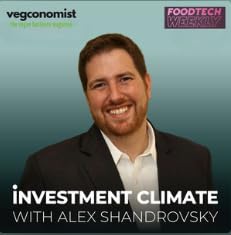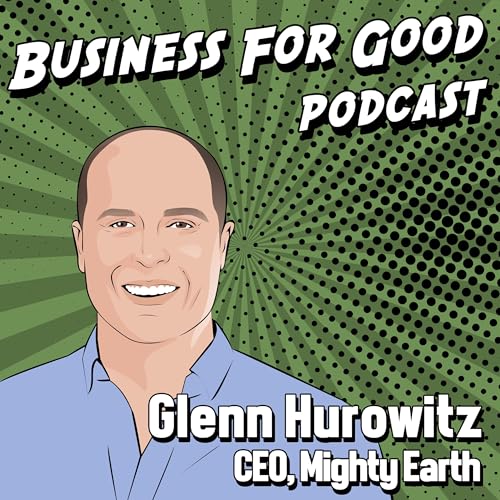If you’ve ever changed a diaper, you might’ve wondered what happens to it after it goes in the trash. The answer, unfortunately, is that it’ll sit in a landfill for hundreds of years—certainly longer than the baby who briefly wore it will live. In fact, every diaper you wore when you were a baby is still sitting around, at best in a landfill, or perhaps even in the ocean. And did you know the average American baby goes through 6,000 diapers before learning to use a toilet?
But what if fungi could change that?
In this episode, I sit down with serial entrepreneur Miki Agrawal, the founder of Thinx (yes, the period underwear company), Tushy (yes, the bidet company), and now HIRO Technologies—a company using plastic-eating fungi to help disposable diapers return to the earth.
Miki, who some have dubbed the “Queen of pee, poop, and periods,” (I think they should shorten it to the “Queen of Secretions”) shares how an opportune moment with her toddler and a children’s book about fungi inspired her to launch HIRO. Her company’s first product—HIRO Diapers—uses a packet of dormant, culinary-grade fungi that awaken when exposed to moisture and begin breaking down the diaper’s plastic components, dramatically reducing its landfill lifespan from centuries to under a year, after which it simply becomes dirt.
We talk about everything from the science of fungal degradation to the challenges of biotech entrepreneurship, from raising millions for an unconventional idea to why she believes reconnecting with nature is the ultimate form of innovation.
Whether you’re a parent, a sustainability enthusiast, or just fascinated by the intersection of biology and business, this conversation will make you rethink what “waste” really means.
Discussed in this episode
-
It was the children’s book Pacha’s Pajamas that implanted the idea in Miki’s mind about plastic-eating fungi.
-
You can buy HIRO Diapers here.
-
You can see HIRO’s original kickstarter, including video pitch, here.
-
Miki recommends checking out the UN Millenium Goals for ideas of companies to create.
-
Reuters discusses HIRO’s launch and technology.
-
Miki also started Thinkx (period underwear) and Tushy (bidets).
More about Miki Agrawal
Miki Agrawal is the creative force behind acclaimed social enterprises TUSHY (the modern bidet brand), THINX (period-proof underwear), and WILD (NYC’s first gluten-free pizza concept), collectively valued at over $250 million. Miki is the author of best-selling books "DO COOL SH*T" and "DISRUPT-HER”.
Her latest company HIRO is a revolutionary nature-based start-up harnessing ancient technology - fungi - to help solve the global plastic crisis. Their first product is a baby diaper that returns to the earth with the help of friendly fungi. (They chose diapers to launch with because they’re the #1 household plastic waste item that takes 400+ years to decompose in a landfill - and each baby uses ~6,000 diapers in their lifetime. Wild, right?) HIRO Diapers starts returning to the earth with the help of fungi - and they’re soft, safe, high-performing and ready to change the game.
Recognized as one of Fast Company's "Most Creative People," a "Young Global Leader" by the World Economic Forum, and named one of INC's "Most Impressive Women Entrepreneurs," Miki brings a wealth of experience and expertise to the stage as a keynote speaker. Her authentic talks have been validated by audiences at MindValley, EO, and Capitalism.com, who have voted for her as the #1 best speaker among hundreds of speakers.
 41 mins
41 mins 34 mins
34 mins 48 mins
48 mins 44 mins
44 mins 34 mins
34 mins 39 mins
39 mins 45 mins
45 mins Jul 1 202559 mins
Jul 1 202559 mins

